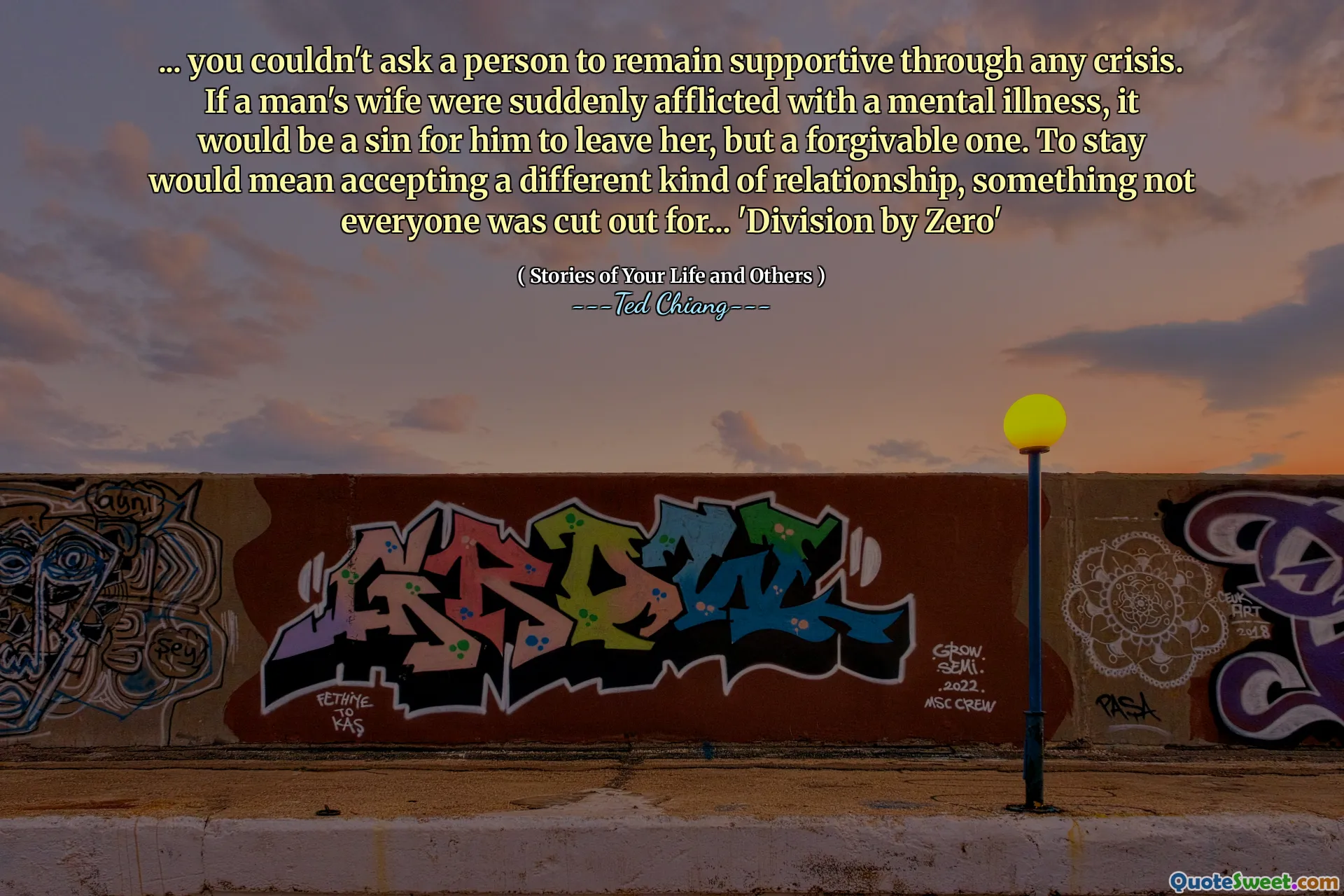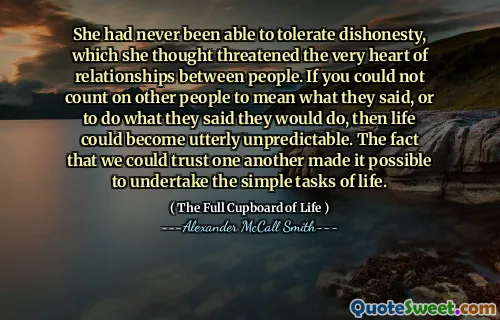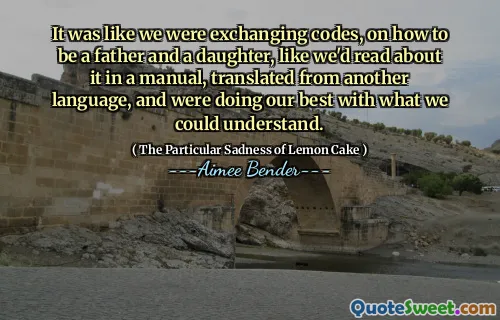
... you couldn't ask a person to remain supportive through any crisis. If a man's wife were suddenly afflicted with a mental illness, it would be a sin for him to leave her, but a forgivable one. To stay would mean accepting a different kind of relationship, something not everyone was cut out for... 'Division by Zero'
This quote delves into the complexities of loyalty, commitment, and the emotional boundaries within relationships when faced with unforeseen or challenging crises. It underscores the notion that supporting a loved one in times of intense hardship, such as mental illness, can transcend conventional expectations and challenge the very definitions of love and duty. The idea that abandonment is viewed as a sin highlights societal or perhaps moral ideals about unwavering support, yet it doesn't gloss over the emotional toll involved. Staying committed in such circumstances doesn't merely mean enduring; it entails a profound acceptance of a transformed relationship where the dynamics shift significantly. Not everyone is capable or ready to embrace these altered circumstances, which might require sacrifices, patience, and unconditional love. The phrase 'something not everyone was cut out for' signals an acknowledgment that true support in such depths can be an extraordinary challenge, testing the limits of empathetic resilience. It raises questions about how love is truly tested; is it in companionship during prosperity or in unwavering dedication amidst adversity? This reflection invites us to consider the boundaries of moral obligation and the personal capacity for hardship. It suggests that genuine compassion often involves making difficult choices that might redefine what normalcy looks like in a relationship. Ultimately, it examines the fine line between loyalty and personal well-being, urging a deeper understanding of what it means to support and accept someone who is fundamentally changed by life's unforeseen trials.






